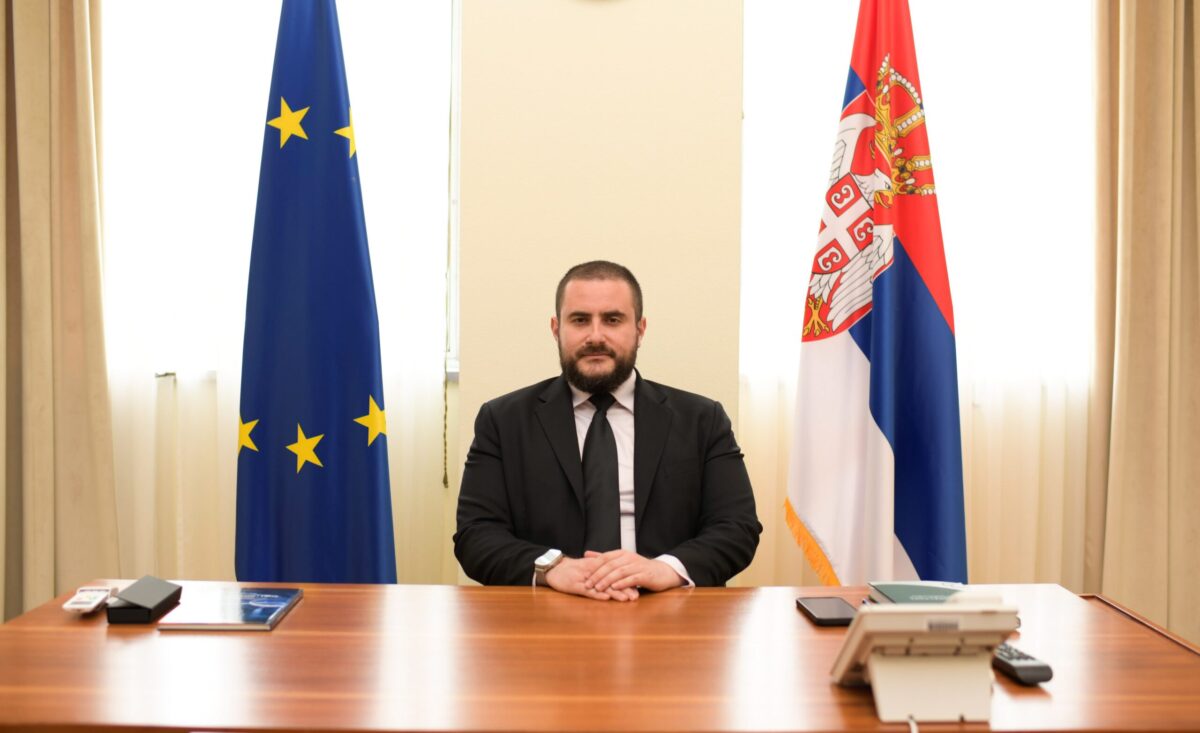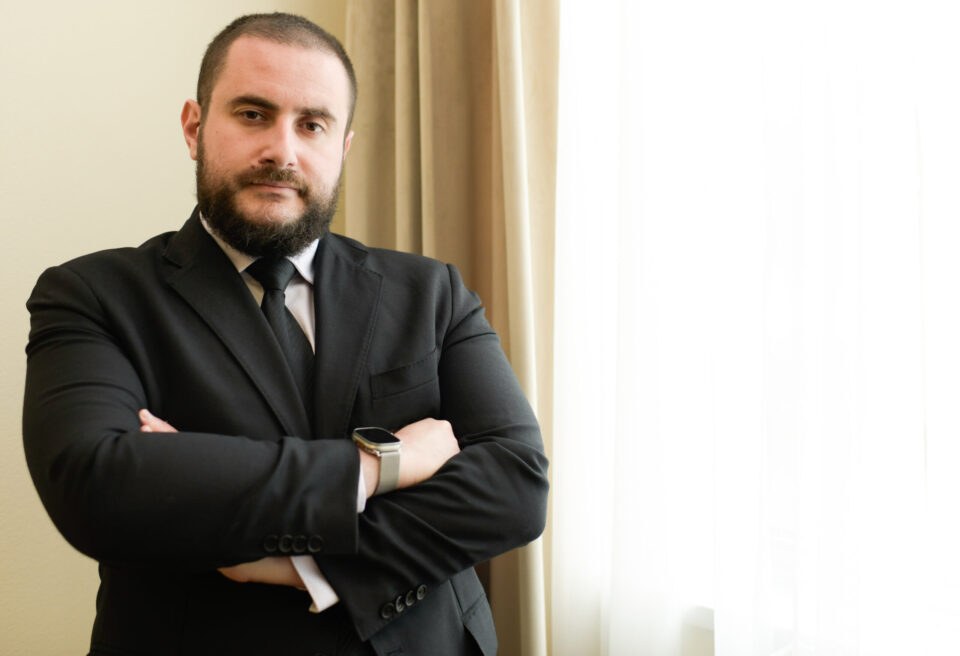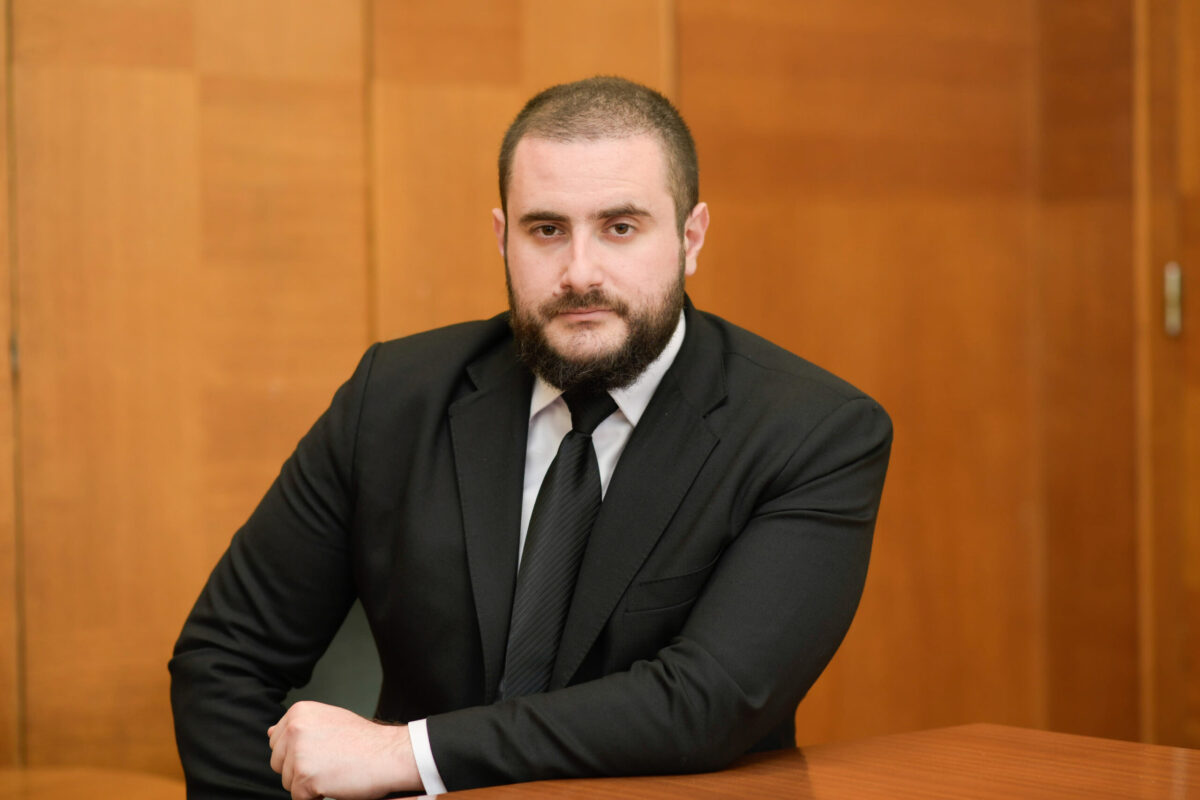“Terrorism has no religion and must not be used in the name of religion! Any generalization is dangerous and unfair to the innocent majority of members of the religion, which in the end fuels another dangerous phenomenon, which is “Islamophobia” which is currently at its lowest level in Serbia!”
 Interview by: Robert Čoban
Interview by: Robert Čoban
I was friends with Muamer Zukorlić, one of the Bosniak leaders in Sandžak and the president of the Justice and Reconciliation Party. After his death in 2021, Muamer’s ‘s son Usame will head the SPP. In the new convocation of the Government of the Republic of Serbia, Usame Zukorlić became a minister without portfolio in charge of reconciliation, regional cooperation and social stability.
He was born in 1992 in Constantine, Algeria, his father, Muamer Zukorlić, a Bosniak from Sandzak, and mother Umeja Abu Taha Zukorlić, an Arab woman. He got married in 2012 and has four children. In addition to his native Bosnian, he speaks English and Arabic.
We have to start with the terrorist attack on the Israeli embassy in Belgrade that happened at the end of last month. How can such an event affect the attitude of the authorities, media and members of the majority nation towards Muslim believers and Bosniaks as a minority?
The terrorist act that took place in Belgrade has the potential to negatively affect the attitude of the authorities, the media and the majority of people towards Muslim believers and Bosniaks as a minority. Events of this type have the potential to raise tensions and stigmatize, above all, the Muslim community. As the president of the Justice and Reconciliation Party and the minister in charge of reconciliation, regional cooperation and social stability, I appeal to the importance of acting wisely, not hastily reacting and choosing words, especially when commenting on Islamic practices and customs, so as not to further damage fragile relations and coexistence.
Your responsibility in the Government as a minister without portfolio is reconciliation and regional cooperation. How events such as the recent resolutions on Srebrenica at the UN and Jasenovac in Montenegro affect reconciliation and regional cooperation?
The resolutions on Srebrenica in the UN and Jasenovac in Montenegro have a profound impact on the process of reconciliation and regional cooperation. These events are emotionally and historically very sensitive for the Bosniak and Serbian people in the region. My role as a minister is to encourage dialogue to increase mutual understanding and empathy. It is not an easy task to work on facing the past together, in order to build a better future.
Like your father, through your political activities you are intensively working on reconciliation between two very close and fraternal peoples – Bosniaks and Serbs. What does that process look like and are you optimistic that these nations can overcome the obstacles of the past?
If I didn’t believe in reconciliation, I wouldn’t work on it. I believe not only in reconciliation, but also in the firm friendship of the two peoples. The process of reconciliation between Bosniaks and Serbs is long-term, difficult, complex, but necessary. We will work on strengthening cultural and economic cooperation, as well as on educating young people about the importance of coexistence and tolerance. I draw optimism from daily encounters with good people who want peace and cooperation.
 What is the position of Bosniaks in Serbia today? Where is there room for improvement?
What is the position of Bosniaks in Serbia today? Where is there room for improvement?
The position of Bosniaks in Serbia is better than before, but there is still a lot of room for improvement. Bosniaks are active participants in the political, economic and cultural life of the country, but they face challenges in the areas of education in their mother tongue and proportional representation in public institutions. We are working to improve conditions for Bosniaks through institutional reforms and projects, which is a slow but only way.
What is the importance of the Sandzak region having its own representatives in the executive branch? Currently, there are two ministers from that part of Serbia.
For the first time, the Bosnians of Sandžak have a party leader in the Government who will represent them authentically and originally, far from the half-hearted politics on the one hand, or the primitive politics on the other hand that they are used to from earlier leaders, unfortunately. Our presence enables better communication and coordination with the central government, which is essential for balanced development and solving specific problems faced by minority peoples.
What is it that you, as a minister and someone who is not from the capital, can do to reduce the development differences within Serbia between the capital and the rest of the country?
As a minister and someone who comes from the periphery, I can contribute to the reduction of development differences within Serbia by insisting on a more even distribution of resources. Initiatives to support local entrepreneurs, development of infrastructure and improvement of educational and health services are key steps towards reducing these differences, in which fields the Government has made significant strides in the past period, and as a result of the agreement of the two most dominant parties with Serbs and Bosniaks in Serbia.
 With which diplomats in Belgrade do you have the most intensive cooperation, and where do you think there is room for improvement?
With which diplomats in Belgrade do you have the most intensive cooperation, and where do you think there is room for improvement?
Cooperation with diplomats in Belgrade is of vital importance for strengthening regional cooperation and social stability, and I currently have the most intensive cooperation with diplomats from countries that are interested in these areas, as well as the position of Bosniaks in Serbia. However, there is room to improve cooperation with diplomats from Western Europe and Asia, in order to expand the network of support and investment.
Let’s finish with current topics related to the events of the end of last month. How many unknowns are there in the public when it comes to Wahhabis, conversion from one religion to another and other concepts that are in the center of attention these days?
The public often does not have enough information about the terms used both in the treatment of extremism that exists among Muslims as well as the terms used and understood by Muslims. Ignorance of the terms leads to misunderstanding and prejudice. As a minister, I will advocate for educating and informing the public through the media and educational programs, in order to reduce unknowns and promote tolerance and mutual understanding. It is important to emphasize that terrorism has no religion and must not be used in the name of religion, such as the expression “Islamic terrorism” and that any generalization is dangerous and unfair to the innocent majority of members of the religion, which in the end fuels another dangerous phenomenon, which is “Islamophobia” which is currently at its lowest level in Serbia.